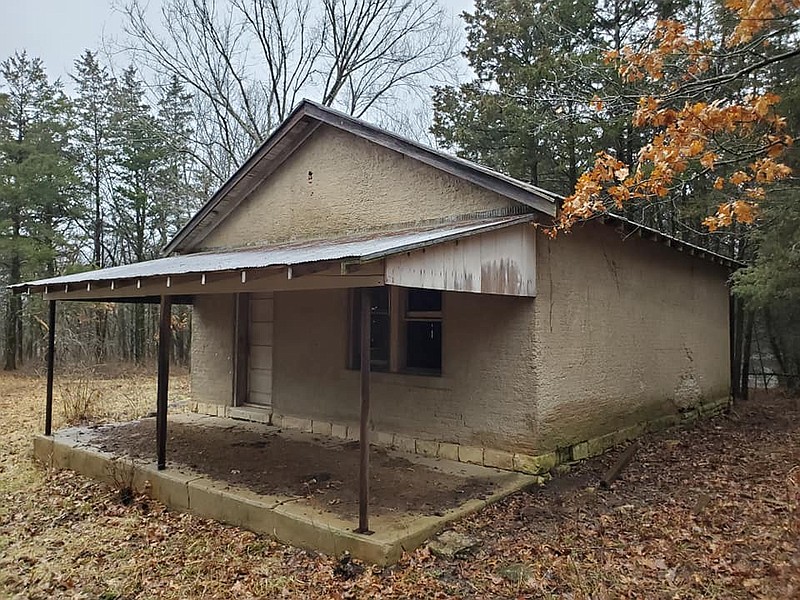“The (one-room) schoolhouses were in most communities the first public building to be erected, and became an arena for social, political and religious meetings,” Leidulf Mydland wrote in an article appearing in the European Journal of American Studies in spring 2011.
The author added, “Altogether more than 200,000 one-room schoolhouses were built in the rural areas of the USA, mostly in the Midwest, where more than 90,000 of these quite simple buildings were erected.”
Counted among this impressive list of unadorned educational institutions is the former Enterprise School. Once located along a now-condemned country road in a rural area of Cole County, the school for several decades served students who lived in the vicinity of Millbrook.
Shortly after the Civil War, Mathias Hirschvogel, an Austrian immigrant who became a farmer in the Millbrook area, donated an acre of his property for the intended purpose of building a schoolhouse. The donation was made with the agreement that should the school ever close, the property would revert back to the farm.
“The school was built and named Enterprise,” explained Lenora Doehla and Dorothy Scheperle in reflections that were printed in the 1988 book celebrating Russellville’s sesquicentennial. “Andrew Weber (later) purchased the farm with the same understanding.”
Historical records reveal that members of the school board later discussed building a new school at a different location, but when Weber revealed he was not interested in purchasing back the property, the plans were abandoned and the original Enterprise School remained.
“In 1922, there were thirty- eight students with Theodore Engelbrecht as teacher,” stated the sesquicentennial book for Russellville. “School board members were: I.C. Simmons, president; William A. Amos, clerk; N.A. Doehla and George Scheperle.”
Although the school remained in operation for a number of years, due to certain factors such as its distance from homes scattered across the rural landscape, the enrollment oscillated from as few as five to as many as 70 students. In 1932, the school had a meager enrollment of 12 pupils.
“Many had to walk three to four miles to school,” explained Russellville’s sesquicentennial book. “This fact contributed to poor attendance, causing a few to reach the age of 21 before graduating.” The book further explained that teachers “boarded with neighboring families” and just like the students, “walked to and from school.”
Susan Scheperle Schenwerk’s grandfather, George Scheperle, was a member of the school board while her father, Elwyn Scheperle, attended the school during the Great Depression. In her father’s effects, she found a photo of the school from 1908 that featured the teacher, Mary Berry, of Russellville, and her 31 pupils.
Berry later married Andrew Blochberger and was only 58 years old when she died in 1944. She was laid to rest in Enloe Cemetery outside Russellville.
For several terms in the late 1920s, Dorothy Payne served as the school’s sole teacher. As a child, she had herself gone through the eighth grade at the small Cottage Grove School before graduating in 1925 from nearby Russellville High School.
Payne continued her education at Central Business College in Sedalia and also the State Teachers College in Warrensburg before marrying Charles Hahn. In later years, she taught at schools in Cole, Moniteau and Miller counties for a total of 32 terms. Dorothy Payne Hahn was 101 years old when she died in 2007 and is buried in Eldon City Cemetery.
“The Enterprise School (session) closed last Wednesday,” wrote the Jefferson City Post-Tribune in the April 23, 1929, edition. “Miss Lennora Doehla received her diploma, passing the eighth grade.”
Doehla, who was 91 years old when she died in 2004, is responsible for preserving a significant amount of the early history of Enterprise School.
“The Enterprise School opened Tuesday,” reported the Jefferson City Post-Tribune on Sept. 5, 1929. “The building has been entirely remodeled during the summer vacation.”
Initially, the small schoolhouse had a brick exterior, but as evidenced in a handful of photographs, the bricks were at some point covered with stucco. The county road that ran in front of the school was condemned in 1940 and by the spring of 1945, enrollment declined to the point Enterprise School was closed permanently.
Andrew Weber, who owned the property surrounding the 1 acre upon which the school building sits, was among three individuals killed in a vehicle collision east of Tipton in August 1929. His brother-in-law, William Kautsch, later purchased the property so his sister and nephews (Weber’s widow and children) could remain living there.
“I was told that in the early 1950s, after the school had closed, my grandfather purchased the one-acre of school property at an auction,” said William Kautsch, grandson and namesake of the farmer who purchased the property after Weber’s death.
“Over the years, the building had been used for storage, and you can still see where the cistern and flagpole were located,” he added.
All too often, the locations where one-room schoolhouses once stood are now empty, without even the friendly whisper of a building to remind the world of the important role they served in a bygone educational tradition.
However, though revealing a few wrinkles from years of weathering, along with busted- out windows and cracked stucco, Enterprise School continues its quiet residence among the shaded forest in rural Cole County, refusing to relinquish its rich legacy and history of instructing students.
Jeremy P. Ämick is writing a series of articles highlighting the history of the Russellville area in honor of Missouri’s bicentennnial.

